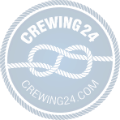
OCTOBER 25, 2013 — It looks like one of the greatest risks faced by seafarers is drowning in paperwork.
Seafarers feel they spend too much time on tasks they consider to be an administrative burden according to the findings of a study by the Danish Maritime Authority, supported by InterManager, the international trade association for ship and crew managers.
A comprehensive survey of international seafarers revealed that a third of all nationalities are annoyed or frustrated by administrative burdens in the maritime sector. These burdens stem from what the seafarers consider to be unnecessary repetition of tasks and demands for too much paperwork and documentation to be handled.
The study also concludes that there is a "significant potential to relocate time to more fruitful tasks" to increase efficiency and quality.
The study, which surveyed almost 2,000 anonymous seafarers from 59 different nationalities, asked 55 questions to understand the characteristics and perceptions of administrative burden and the different types of work-related activities perceived as administrative burdens among seafarers.
The survey concentrated on seven main areas of work: preparation of and participation in Port State Control, Flag State Control or Class inspections; vetting inspections; handling of International Vessel and Port Facility Security requirements (including paperwork and mandatory deck watch duties); planning and executing exercises and drills; using and maintaining internal management systems (QSM, ISM etc); completion of journals (garbage, oil, deviation etc); and the completion of port and pre-arrival documents (such as crew and passenger lists, vessel stores, port calls, health declarations etc).
At least 50% of those responding – and sometimes as many as 79% – felt the tasks were repeated too often and required too much documentation and paperwork. The report concluded that "a lot of paperwork and documentation that is being produced on the job contributes little value to the work of the seafarers".
Port and pre-arrival documentation proved particularly problematic with many seafarers feeling a lot of the paperwork was superfluous.
The report advised: "The qualitative comments from the seafarers give the general impression that the amount of necessary paperwork has exploded in recent years and in some cases taken time away from more urgent and meaningful tasks in terms of guaranteeing ship safety. Seafarers suggest easing the rigid control slightly and instead putting more focus on culture and competencies in order to effectively and meaningfully improve efficiency and safety on vessels."
The report states that "many seafarers are frustrated because they feel that the time usages are disproportionate to the gains of many of the tasks" and advises there is "a large potential to rationalize and/or digitalize at least some of the processes".
The report stresses that seafarers and shipowners understand the rationale underlying most procedures and requirements even though these may lead to administrative burdens. They acknowledge that such procedures are not implemented with the aim of being a burden but that they in principle serve higher-end objectives suxh as personal safety and environmental protection."
The report says there is scope for developing "work smart, easy-to-use" digital solutions to reduce paperwork and time consuming manual workflows, particularly in relation to port and pre-arrival procedures. In addition the report recommends a revived focus on seamanship and safety culture with a view to reducing the number of procedures and burdens.
InterManager Secretary General, Captain Kuba Szymanski, said: "InterManager members and their crews were happy to take part in this important survey. The amount of time seafarers report they are spending on administrative tasks is eye-opening and we welcome the report's suggestion for further investigation into how these requirements can be better complied with to enable smarter working."
Read the report HERE
![[ad-side]](http://www.crewing24.com/ad_images/86_banner.png)
![[ad-side]](http://www.crewing24.com/ad_images/85_banner.jpg)
![[ad-side]](http://www.crewing24.com/ad_images/107_banner.jpg)
![[ad-side]](http://www.crewing24.com/ad_images/102_banner.jpg)
![[ad-side]](http://www.crewing24.com/ad_images/95_banner.gif)
![[ad-side]](http://www.crewing24.com/ad_images/115_banner.jpg)
![[ad-side]](http://www.crewing24.com/ad_images/80_banner.jpg)
![[ad-side]](http://www.crewing24.com/ad_images/91_banner.png)
![[ad-side]](http://www.crewing24.com/ad_images/106_banner.jpg)
![[ad-side]](http://www.crewing24.com/ad_images/94_banner.png)